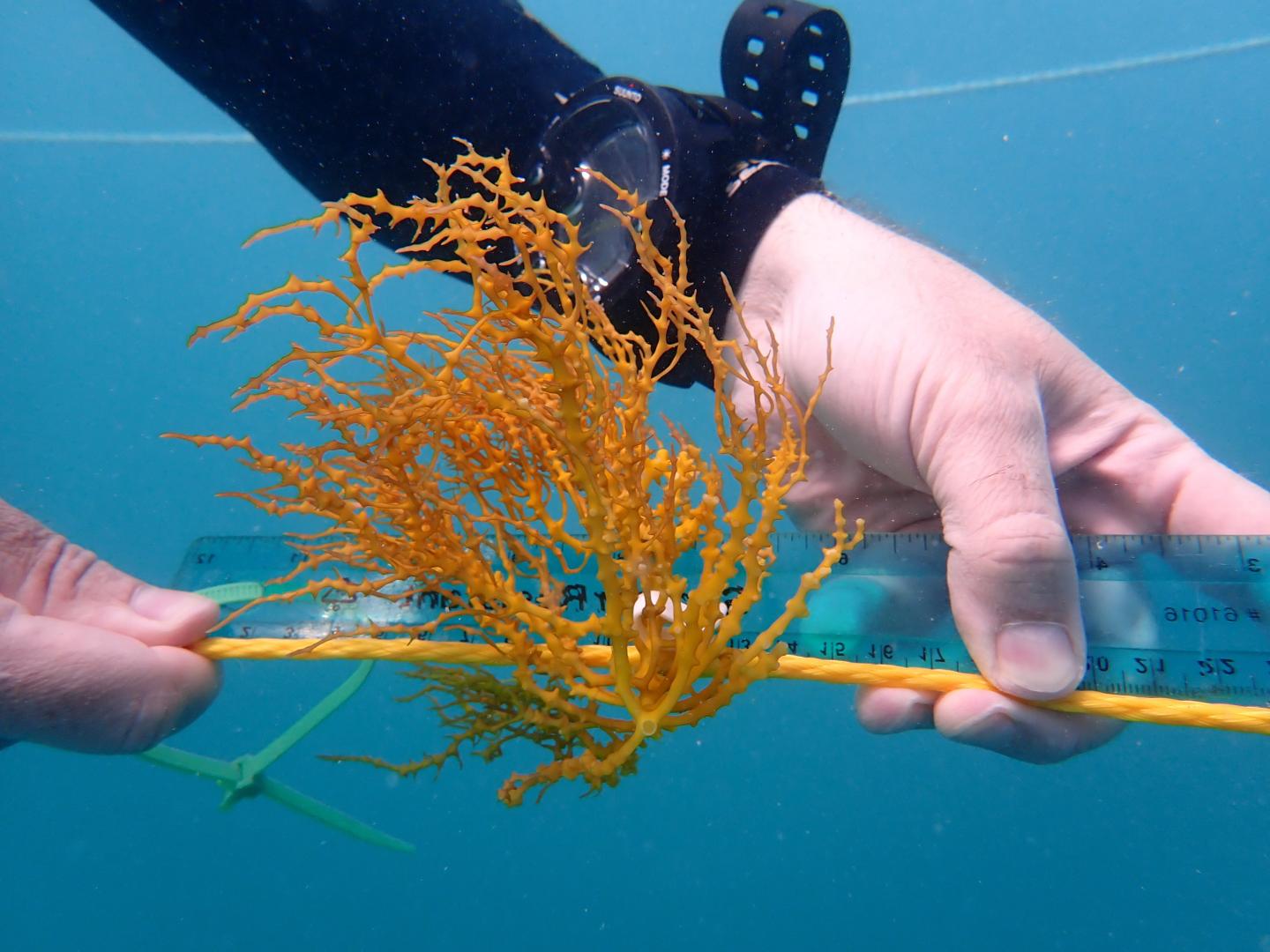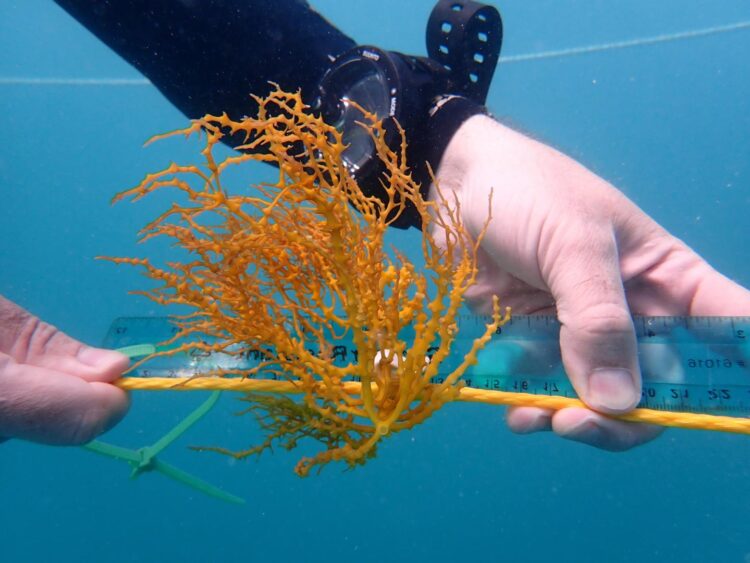
Credit: Loretta Roberson, MBL
WOODS HOLE, Mass. and La Parguera, P.R. – A team of researchers led by Loretta Roberson of the Marine Biological Laboratory, Woods Hole, has installed the first seaweed farm in Puerto Rico and U.S. tropical waters.
The research array furthers the design and development of a system for offshore cultivation of tropical seaweeds to support large-scale production of biomass for biofuels and other valuable bioproducts.
“Puerto Rico has stable warm temperatures and ample sunlight year-round, as well as a wide range of exposure to prevailing winds and waves. These conditions make its southern coastline an ideal test bed for exploring how environmental conditions influence the biological, physiological, and chemical properties of cultivated macroalgae, as well as the impact of seaweed farms on the surrounding environment,” says Roberson, the lead principal investigator on this research effort. Additional farms are being tested in Florida and Belize to assess scalability.
As the site is the first of its kind in the region, authorizations were required from numerous agencies including the U.S. Army Corps of Engineers, the U.S. Coast Guard, and the Puerto Rico Department of Natural and Environmental Resources.
“Facilitating research of this nature will be key for the development of sustainable aquaculture in this area,” says Roberson. “We have tested similar farm designs in New England and Alaska, but this will be the first test of the array in warm tropical waters where we expect higher fouling rates from other marine organisms, UV damage, and threats from hurricanes.” Unlike kelp cultivation, which is usually seasonal, tropical seaweed farming can support year-round harvesting.
The research team includes experts in ocean farm systems design, modeling of nutrient dynamics in ocean systems, environmental impact assessment and stakeholder engagement, and economic analysis.
The team members are affiliated with an additional 16 organizations: Caribbean Coastal Ocean Observing System, University of Puerto Rico Mayaguez, University of Puerto Rico Rio Piedras, Woods Hole Oceanographic Institution, C.A. Goudey & Associates, Tend Ocean, University of Connecticut Stamford, Cascadia Research Collective, Center for Research and Advanced Studies of the National Polytechnic Institute Merida, Makai Ocean Engineering, Pacific Northwest National Laboratory, Rutgers, The Nature Conservancy, Two Docks Shellfish LLC, University of California Irvine, and University of California Santa Barbara.
The researchers are currently targeting commercially valuable red algal eucheumatoid species, which are primarily cultivated in East Africa and Asia. To date, eucheumatoids have been difficult to propagate in a cost-effective manner and production has been limited to easily accessible areas near shore. In addition to developing the best methods for cultivating these species in offshore environments, the project team seeks to further quantify the ecosystem services associated with the farming activities. These likely include habitat provision for a variety of marine species and the improvement of water quality through removal of excess nutrient and buffering of pH.
MBL received funding for this research from the U.S. Department of Energy’s Advanced Research Projects Agency-Energy (ARPA-E) competitive Macroalgae Research Inspiring Novel Energy Resources (MARINER) program. The MARINER program seeks to develop the tools to enable the United States to become a leading producer of macroalgae, helping to improve U.S. energy security and economic competitiveness.
For additional information about MBL and this project, please visit: mbl.edu/tropical-seaweed/
###
The Marine Biological Laboratory (MBL) is dedicated to scientific discovery – exploring fundamental biology, understanding biodiversity and the environment, and informing the human condition through research and education. Founded in Woods Hole, Massachusetts in 1888, the MBL is a private, nonprofit institution and an affiliate of the University of Chicago.
Media Contact
Diana Kenney
[email protected]
Original Source
https:/





